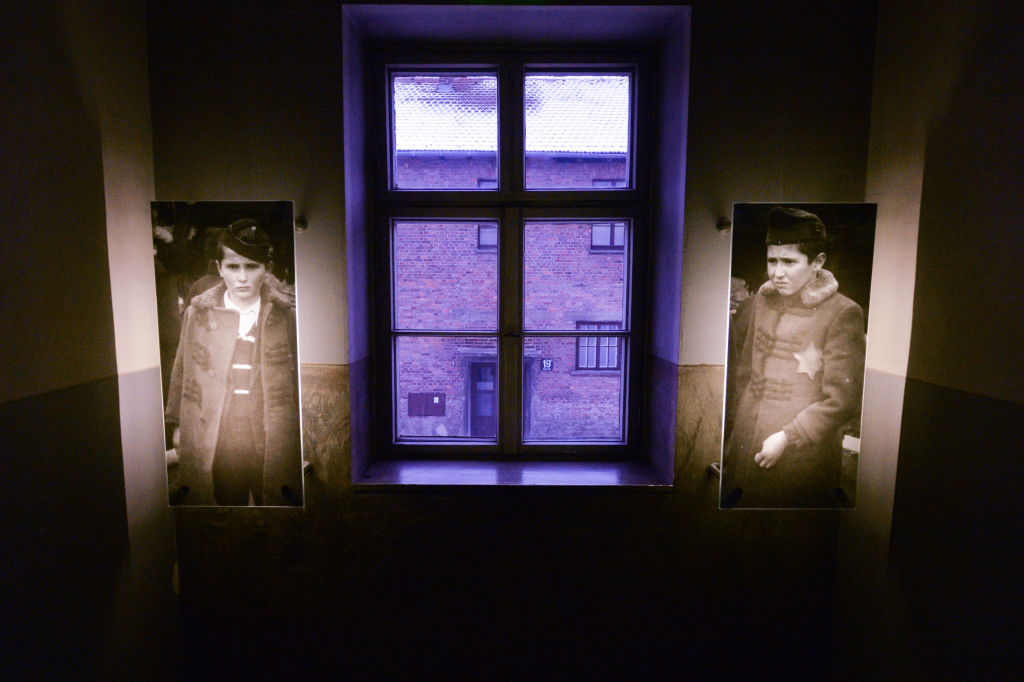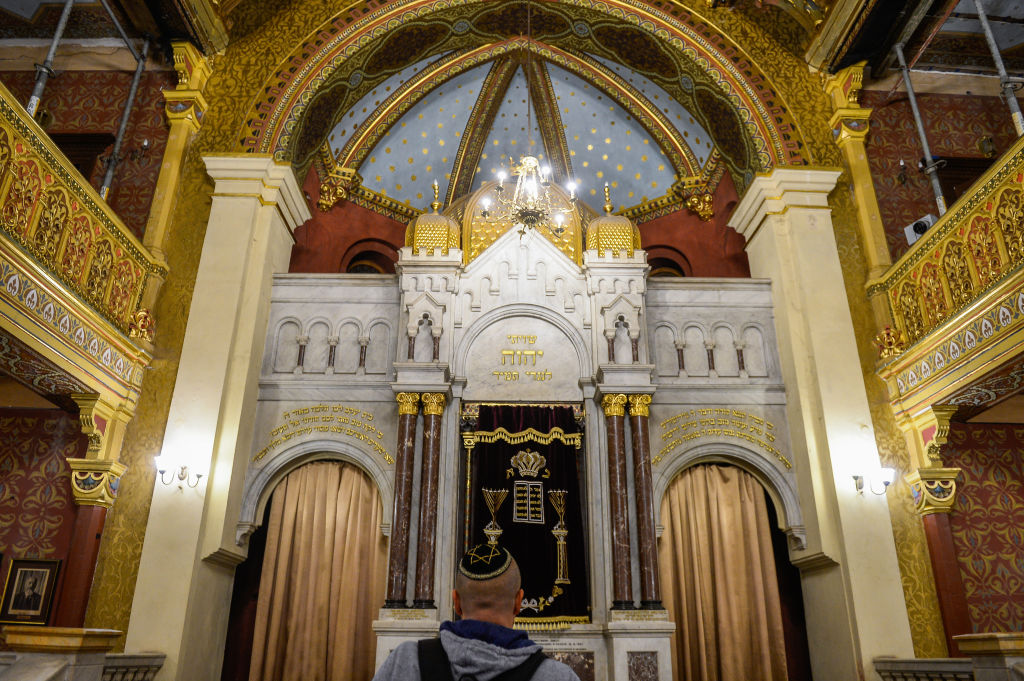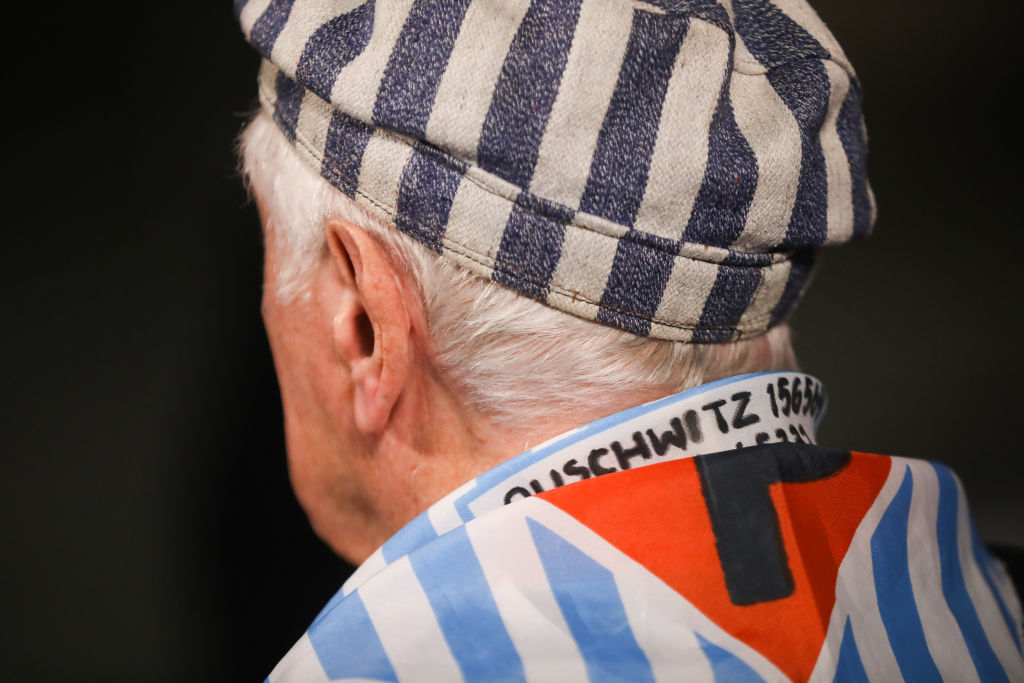
Until she was 13, Marcjanna Kubala thought she was Christian, like nearly every Polish citizen. Then one day after school, she searched her name on Google and found her family tree. Her great-grandmother’s family name didn’t sound Polish, she thought. “Were they German?” Kubala asked her mother. “No,” she replied. “They were Jewish.”
Surprised and fascinated, Kubala, who lives in Krakow, began a journey of rediscovering her identity. Her great-grandmother had lived in Krakow during the Holocaust, and survived because she’d married a Christian—and was therefore able to pass as one. Kubala’s grandmother and mother did the same—both aware of their Jewish heritage and both hiding it. Kubala, on the other hand, had no idea. While her mother had dropped hints over the years, she chose only to tell her daughter directly when she asked that day.
Unlike the generations before her who had to hide their Jewish roots, first during the Holocaust and then under Communism, Kubala could embrace her newfound heritage. She joined Krakow’s Jewish Community Center (JCC), where she met others on the same journey. After college, she became director of Krakow’s Hillel, an organization of young Jews with chapters around the world.
“This sounds unusual, but I’m just one of many hundreds of people with a similar experience,” says Kubala, now 27. Hillel membership in Krakow has doubled in the last year. “Most members are like me, people who discovered only later in life that they’re Jewish,” Kubala says. “For many years they had no idea where their family roots came from. Then they discovered a document or a picture and everything changed.”
Amid a resurgence of anti-Semitism throughout Europe, and despite a nationalist government that has sought to silence criticism of Polish complicity in the Holocaust, Poland’s Jewish community is being reborn. It’s a trend being led not just by people who have recently discovered their Jewish ancestry, but also those without Jewish roots who wish to give back. Now Poland, where 1,000 years of Jewish history went up in flames over seven decades ago, is home to one of the fastest-growing Jewish communities in the world.

In 1939, Poland was home to 3.5 million Jews, Europe’s largest Jewish population. On the eve of the Holocaust, 10% of Poles were Jewish. (For comparison, less than 2% of the U.S. population is Jewish.)
Being the capital of European Jewry made Poland the prime target for Nazi brutalities. Adolf Hitler’s regime built its deadliest concentration camps here, and more Jews were murdered in Poland than anywhere else by far. Just 10% of Poland’s Jewish population survived.
After the camps were liberated, most Jews left Poland, mainly for Israel and the U.S. As a result, nearly 80% of American Jews have Polish roots, says Poland’s Chief Rabbi Michael Schudrich, a native New Yorker whose grandparents fled Poland before the war.
Those who stayed in Poland continued to suffer. Dozens of Jewish Holocaust survivors were murdered by their neighbors upon returning to their homes. Some Poles joined a “gold rush,” digging for valuables in mass graves of Jewish bodies. As Communist rule quickly replaced Nazi rule, Polish Jews were forced to choose between their faith and their country. Those who left could remain Jewish; those who stayed had to hide their Jewish identity.
That process accelerated with the 1968 purge, when more than 15,000 Jews—half of Poland’s Jewish population—were stripped of citizenship and forced to leave. As a result, less than a tenth of the 10% of Polish Jews who managed to survive the Holocaust remained, says historian Stanislaw Krajewski.
In 1939, the city of Krakow was home to 70,000 Jews, a quarter of the city’s population. Today around 100 Jews live there—or at least that’s what the guidebooks say. According to Jonathan Ornstein, executive director of JCC Krakow, that figure is actually closer to 2,000 and steadily rising. High-ranking members of the Jewish community estimate there are now 30,000 Jews among Poland’s 38 million citizens, up from 10,000 in 2007—and say there could be many more still unaware of their ancestry. “Thousands of people are walking around Poland with Jewish roots they still don’t know they have,” Ornstein says, estimating there may be as many as 100,000.
Among its events and workshops, JCC Krakow now offers genealogy services to help people trace their Jewish roots, and Shabbat dinners where gentile visitors can learn more about the community. In 2017, the center opened Krakow’s first new Jewish community preschool since the Holocaust.
Kasia Leonardi was 25 when she discovered Jewish ancestry on both sides of her family. Given Poland’s history, she was hesitant to embrace those roots. But encouraged by her sister, Leonardi eventually attended a Hanukkah party at the JCC and became more involved. Two years later, she and Ornstein began dating, and in 2017 they married in a ceremony conducted by Rabbi Schudrich outside the JCC in Krakow’s old Jewish quarter.
The fact that this community hub lies just 40 miles from Auschwitz, the most notorious of the Nazi death camps, should send a message to the international Jewish community, Ornstein says: Poland isn’t just a graveyard of Jewish tragedy, but also a living monument to Jewish resilience. “Of course we must visit the Holocaust sites, but we must understand that we as a people are more than that. Maybe Auschwitz is a little piece of who I am, but I refuse to be defined by what others have done to my family,” says Ornstein, whose grandmother lost her parents and all her siblings at the camp.
He and others see this rebirth of Poland’s Jewish community as a way of healing, 70 years on. “We can’t bring back the 6 million victims, but we can do something else that I don’t think we realized we could do,” he says. “We can bring back Jewish lives.”

Poland’s broader relationship with Jewish people remains complicated. Anti-Semitism still exists on the fringes of society; far-right groups have accused President Andrzej Duda, whose wife has Jewish lineage and relatives in Israel, of being beholden to Jews.
But Duda’s nationalist government has also been at the center of a feud with the Israeli government over the treatment of the historical record surrounding the Holocaust. Last year, it angered the Israelis, as well as the U.S. and other Western governments, by pushing a bill that outlaws blaming Poland for any crimes committed during the Holocaust. The so-called Holocaust bill, which has since been watered down, faced international criticism for censoring discussions of Polish complicity.
Relations had appeared to be warming until February, when Israeli Prime Minister Benjamin Netanyahu said Feb. 14 during a summit in Warsaw that “Poles cooperated with the Nazis” during the Holocaust. The Polish Prime Minister pulled out of a planned trip to Israel for a summit of Eastern European nations, which was then canceled.
In a sign of the complexity of this issue, Poland’s Jewish community sided with Poland in the diplomatic scuffle—especially after a senior Israeli minister accused Poles of “[suckling] anti–Semitism with their mother’s milk.” Ornstein echoes sentiments expressed by many Polish Jews, who say the country’s views aren’t reflected by a single piece of legislation. “When you hear about anti-Semitism in Poland, it’s a little more complicated than we realize,” he says.
Against this geopolitical backdrop, the JCC in Krakow offers a powerful symbol of reconciliation—especially given the role played by non-Jews, or gentiles, in its revival. The JCC’s permanent staff includes many Jews, but all of the 55 volunteers are gentiles. These non-Jewish volunteers are crucial for helping out on Shabbat, when Jews are not supposed to work.
Among them is Agnieszka Gis, who has volunteered at the JCC since she was 16. She was raised in the city’s old Jewish quarter, which had been a Jewish ghetto during the war. Learning about the Holocaust and visiting a concentration camp is mandatory in Polish schools. After visiting Auschwitz in high school, the 24-year-old recalls, “I couldn’t help but feel something of a void, because my country is missing something, my city is missing something, the streets where I grew up are missing a big part of their identity.” When she heard about the JCC, she was shocked to find there was indeed a thriving Jewish community in the area. “I thought the Holocaust was the end,” she says.
Giś began volunteering regularly, spending time with Holocaust survivors, their children and grandchildren. “I felt it was important to show them that they are welcome here in Poland,” she says.
She is one of thousands of non-Jewish Poles supporting Jewish renewal throughout the country. “I’m not alone in this feeling that Jews are a part of Poland and we should welcome back this community,” Giś says.
It’s hard to overstate how crucial non-Jews have been to Poland’s Jewish revival.The Krakow JCC was founded in 2008 by Prince Charles, together with the American Jewish Joint Distribution Committee (JDC) and World Jewish Relief, the British organization behind the Kindertransport, which rescued thousands of Jewish children during the Holocaust.
As Ornstein puts it, “In our history, when non-Jews have taken a tremendous interest in us, it hasn’t worked out very well.” But in Poland’s case, that interest breathed new life into a community facing extinction.
In 1988, non-Jewish Poles created what is now the world’s largest Jewish culture festival, held in Krakow’s old Jewish quarter each summer. Attracting some 30,000 mostly non-Jewish Poles, the festival played a key role in boosting Jewish life here, says Krajewski, who co-chairs the Polish Council of Christians and Jews. Many people with Jewish ancestry were initially hesitant to embrace those roots, he says. But “the festival was such a success, they realized that if non-Jews could be so attracted to Jewish culture, maybe Jews could be too.”
In the same week as the Jewish Cultural Festival, the JCC today stages a “Ride for the Living”—a kind of homage to “March of the Living,” the annual event in which thousands of people from around the world march from Auschwitz to Birkenau in memory of the 6 million Jews murdered during the Holocaust.
Instead of marching through concentration camps, Ride for the Living takes several hundred participants on a 60-mile bicycle ride from Auschwitz to the Krakow JCC, from the death of Jewish life in Poland to the site of its renewal. For Ornstein, there is no better way to show the world how far Polish Jews have come. “This symbolizes in a very strong way what we’re doing in this community,” he says. “People are tracing our history from darkness to light.”
More Must-Reads from TIME
- Donald Trump Is TIME's 2024 Person of the Year
- Why We Chose Trump as Person of the Year
- Is Intermittent Fasting Good or Bad for You?
- The 100 Must-Read Books of 2024
- The 20 Best Christmas TV Episodes
- Column: If Optimism Feels Ridiculous Now, Try Hope
- The Future of Climate Action Is Trade Policy
- Merle Bombardieri Is Helping People Make the Baby Decision
Contact us at letters@time.com